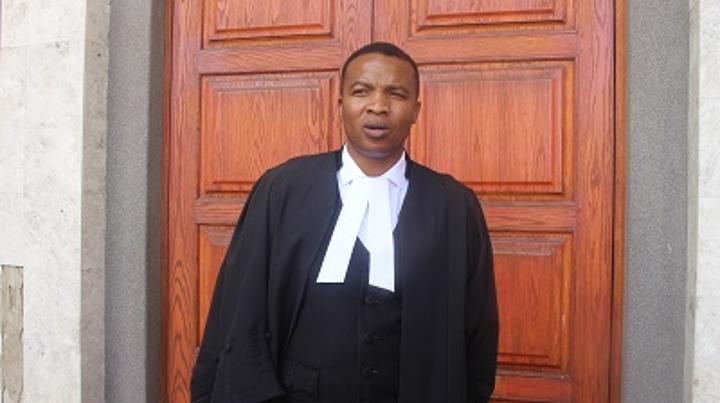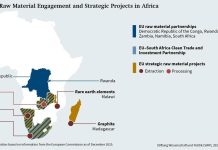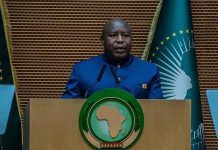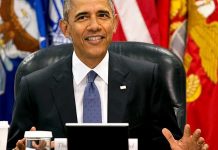Africa-Press – Lesotho. The High Court has on Tuesday declined the urgency of the case challenging the mandatoryCOVID-19 vaccination policy imposed by the government earlier this month.
This is according to one of the lawyers representing the applicants in this case, Advocate Fusi Sehapi. He said the case will be heard when the court opens early next
month. Advocate Sehapi said they had wanted to move an urgent application seeking interim relief before the judge who is on call, but they were later told that the case will be heard when the court adjourns next month.
He said the urgent prayer, with which they seek the relief, is that the court stays the mandatory vaccination policy pending the finalisation of the case.
The application will be heard by the Constitutional Division of the High Court once the case has been allocated judges and the hearing date has been scheduled.
The applicants are Christian Advocates and Ambassadors Association of Lesotho, Justice and Democratic Ambassadors Association, Sejela ‘Melekeli, Koantlane Molefi, Teele Ntšonyana and the Lesotho Public Service Staff
Association being the first to sixth applicants respectively. The respondents are the Prime Minister, National COVID-19 Secretariat (NACOSEC), Minister of Health and the Attorney General being the first to
fourth respondents respectively. Some of the reliefs which the petitioners seek include that the respondents be made to produce “admissible, verified and competent” expert
report or evidence to prove the “existence” of the COVID-19, the “necessity to vaccinate, safety and effectiveness of the vaccine/s and attendant risks to the
applicants”. They further pray that Regulation 25 of the Public Health (COVID-19) Risk determination and Mitigation Measures Regulations, 2021 as amended be
declared “unconstitutional for substantial “overbreath” [sic] and/ or “vagueness” in that it imposes [a] positive duty on “any” health office and/or any medical officer”.
Informative Newspaper
has since learned that the government will file an application of the intention to oppose. The government had since October last year threatened to impose
strict measures against those who had not been vaccinated. According to medical experts, the vaccines lower risks of severe illness and death. The World Health Organisation (WHO) had said: “While a COVID-19 vaccine
will prevent serious illness and death, we still don’t know the extent to which it keeps you from being infected and passing the virus on to others. ”
“Vaccines are effective for protecting people from COVID-19. Governments
and/or institutional policy-makers should use arguments to encourage voluntary vaccination against COVID-19 before contemplating mandatory vaccination.
Efforts should be made to demonstrate the benefit and safety of vaccines for the greatest possible acceptance of vaccination. Stricter regulatory measures
should be considered only if these means are not successful. “A number of ethical considerations and caveats should be explicitly discussed and addressed through ethical analysis when considering whether
mandatory COVID-19 vaccination is an ethically justifiable policy option. Similar to other public health policies, decisions about mandatory vaccination
should be supported by the best available evidence and should be made by legitimate public health authorities in a manner that is transparent, fair, non-discriminatory, and involves the input of affected parties,” reads the
World Health Organisation (WHO) COVID-19 and mandatory vaccination: Ethical considerations and caveat in pertinent part. Elsewhere, there have been successful litigations challenging the
mandatory vaccinations and in other places, the court had rejected such applications. The Minister of Health Hon. Semano Sekatle had in December told the
nation that owing to a spike of COVID-19 cases the civil servants will be forced to take vaccine failing which they will not be allowed access to their
work. He also said the government had instructed the private sector and the non-governmental organisations (NGO) to bar their workers from accessing the
work premises unless they have been vaccinated, this was to be effective from January 1. The public cannot access social services and places like restaurants
without producing vaccination cards. In their last week Thursday media briefing, the NACOSEC had told the reporters that following the introduction of the mandatory vaccination, the
number of vaccinated people had tripled. The government said it wants to reach herd immunity and vaccinate at least 1,6 million people. According to NACOSEC, Lesotho has vaccinated over 50
percent of the population, a figure of just over 800 000. Lesotho launched a vaccination campaign last year in March which saw the Royal Family, the Prime Minister and high ranking government officials being first to take a jab.
For More News And Analysis About Lesotho Follow Africa-Press






